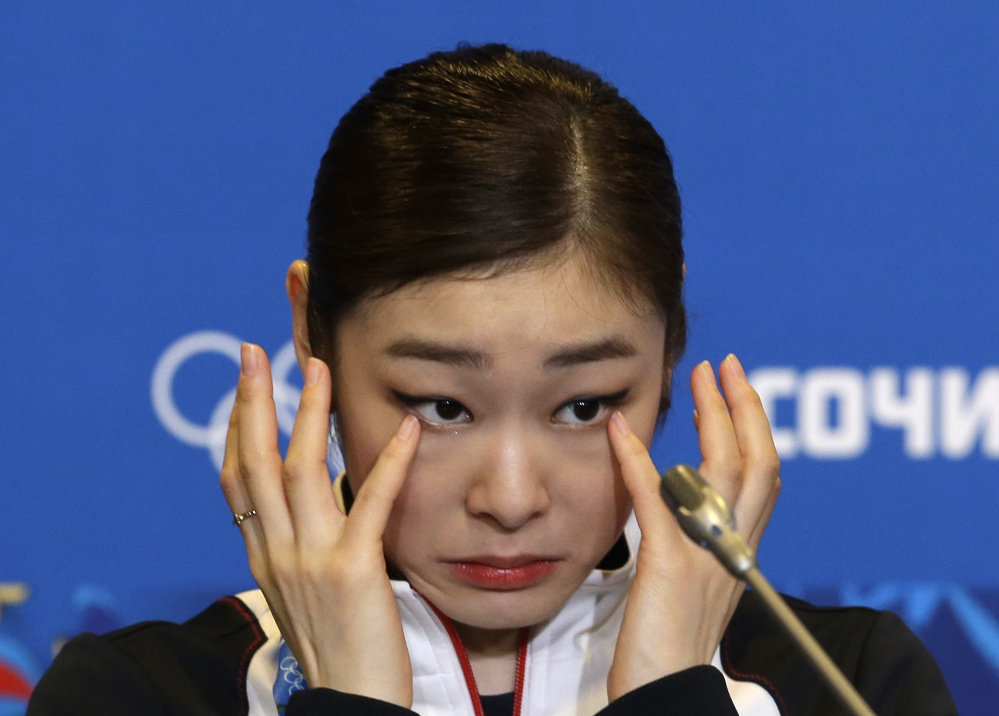SOCHI, Russia — The South Korean Olympic Committee has protested the results of the women’s figure skating competition, although the sport’s international governing body said Saturday it has not yet received the letter.
International Skating Union rules always have required such protests be filed immediately after the event.
The Koreans believe the judging was biased and cost Yuna Kim a second gold medal. The 2010 champion finished with silver, behind Russian teenager Adelina Sotnikova.
Much of the uproar over the women’s free skate centers on what many perceived as a lack of artistry in Sotnikova’s program. Yet her marks were comparable or better than those for the highly artistic Kim. Her technical marks were significantly better.
Bronze medalist Carolina Kostner of Italy also fell into the same category as Kim in her marks.
Asked to comment on South Korean media reports of the protest, International Olympic Committee spokesman Mark Adams on Saturday said any figure skating issues would be a matter for the ISU to handle.
“They have their processes and regulations,” Adams said. “From what I understand the letter wouldn’t trigger any investigation.”
The ISU said it had not received the letter, and declined to comment further.
On Friday, the ISU released a statement saying it “is confident in the high quality and integrity of the ISU judging system.”
“The ISU is strongly committed to conducting performance evaluations strictly and fairly and has adequate procedures in place to ensure the proper running of the sporting competitions,” the statement said. “The officiating judges were selected by random drawing from a pool of 13 potential judges. All judges in an event represent different ISU member federations. The ladies’ free skating panel included judges from Canada, Estonia, France, Germany, Italy, Japan, Russia, Slovakia and Ukraine.”
Scott Hamilton, the 1984 Olympic champion and a longtime television analyst who worked the games in Sochi for NBC, sees an intrinsic flaw in that setup. He believes the judges should be insulated from the day-to-day management of the sport, not a part of the federations that run it.
“The problem was never the scoring system,” Hamilton said of the 6.0 format that was changed to the points system soon after the 2002 Games pairs scandal. “It was how the judges are selected for these competitions. What happened in Salt Lake City resulted in this scoring system not treating the issue. Every sport out there has an affiliated association of officials. They are separate from the federation, and figure skating is hesitant to do that. It is a fundamental issue that leads to people having a hard time taking the results as the results.”
Send questions/comments to the editors.



Success. Please wait for the page to reload. If the page does not reload within 5 seconds, please refresh the page.
Enter your email and password to access comments.
Hi, to comment on stories you must . This profile is in addition to your subscription and website login.
Already have a commenting profile? .
Invalid username/password.
Please check your email to confirm and complete your registration.
Only subscribers are eligible to post comments. Please subscribe or login first for digital access. Here’s why.
Use the form below to reset your password. When you've submitted your account email, we will send an email with a reset code.